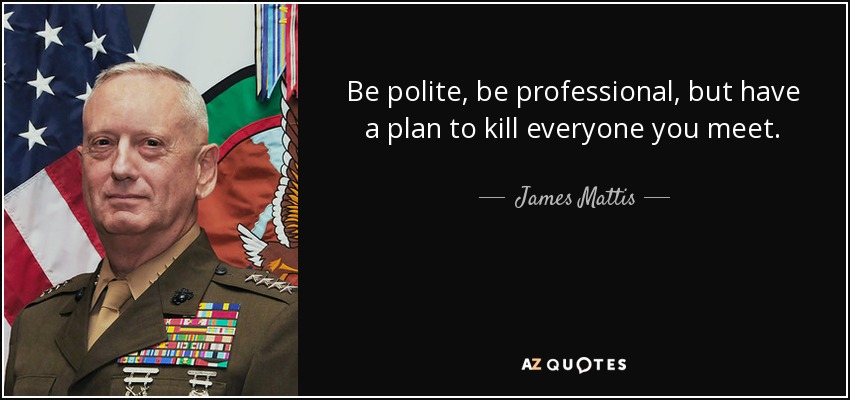Reflections on Clausewitz Chapter 3: The Genius for War

Genius in war is a harmonious association of powers; common attributes of the mind and soul. It is generally common amongst savage, warlike people, but these people seldom create good generals; civilized people do not encourage the genius for war in general, but from them flowers the true geniuses who rise above the common chevalier. This fits into something War Nerd once noted: that it’s the passionate people who are terrible at war (Italy) while the over-civilized people exemplify it (Japan, Canada). Clausewitz equates this with “High Culture” – but I think “Apollonian Culture” (as opposed to Dionysian) might be the more accurate term. America fields a military that’s bigger than anything on the planet – but it’s run by a confederation of dunces, and the average troop can’t find Afghanistan on a map. I believe this directly relates to the Dionysian “Porn and Hamburgers” culture of America; Canada, despite it’s many flaws, focuses on politeness and civility, not consumption; thus, pound for pound, she creates some of the most effective soldiers and generals on the planet.
Clausewitz delineates two forms of courage; physical and moral.
The first can be broken down into fearlessness, and principled – derived from pride or patriotism. The first is firmness, the second is boldness. The two combined are the perfect form of courage.
Because war involves suffering, an inurement is necessary; ergo Basic Training “Learn to love the Suck.” Beyond this, the mind must contend with war’s uncertainty; a keen and insightful mind must penetrate it (thus why higher IQs are less likely to suffer PTSD). The second form of courage – that which drives a man to boldly seek out (to seek out boldly? Screw you, grammar check), to create order out of chaos through force of will – becomes paramount.
Note: he observes that ¾ of the things you need to know are obscured from view.
One of the problems of war – which was repeatedly referenced in the Heinlein novel The Moon is a Harsh Mistress – is that, paradoxically, increased knowledge of the situation increases uncertainty. In July of 2015, it was obvious that Trump was going to win the election; by October of 2016 it was seriously in doubt. He suggests that this is because new data doesn’t come all at once, but in bits and pieces; each piece needs to be integrated as it comes, leading to hesitation in the short-term.
To deal with this madness, the military mind requires an inner light, and the resolution to follow it. The French referred to this as the coup d’oeuil. This derives from the quick decisions of the cavalry commander, who can spot an opportunity at a moment’s notice, but it needs to be internalized as a form of thought; a quickness of the mind: “The rapid discovery of a truth which to the ordinary mind is either not visible at all or only becomes so after long examination and reflection.”
Resolution is the mental habit of following one’s decisions, and refusing to be swayed by emotion; faith in one’s cause. It is a habit one must develop in their mind. He uses it both in the sense of being resolved to a line of action and that of noun, a resolution to this question has been decided and shall be carried out. It is the act of the mind ruling over the will – ergo, unintelligent people cannot be resolute. They may act without hesitation in perplexing circumstances, but it will be without reflection. Ultimately what he describes is a peculiar direction of the mind; while many may act with consistent courage, very few can both reflect and then demand their will become subservient to their thoughts.
This can be summed up as “Presence of Mind” – that is, living in the present. Being capable of long periods of inaction, and quiet study – while simultaneously being able to snap judgments based upon new information – not merely following rote procedure, but inventing new procedures on the fly.
The atmosphere of war is that of danger, physical effort, uncertainty, and chance; the military genius must be able to cope with all four.
Staunchness: the ability to withstand multiple (mental) blows.
Self-command: the ability to ride one’s passions, without diminishing them, but maintaining control.
The ideal commander is not moved easily, but has great passions nonetheless; passions which are deep and latent.
To keep one’s head during turmoil use the following maxim: until a clear conviction forces you otherwise, hold firm to your first opinion. Contrast to obstinacy, which is a fault of the feelings. Clausewitz is essentially describing a gamma male here, one who refuses to admit they’re wrong because of feelz.
The commander understands the earth herself. The farmer knows his own plot of land – the commander understands geography he’s never seen with but a glance, like a sculptor who already sees the carving in the raw material.
Intellect is at the core of soldiering, even if many think that bravery is the only needed attribute. The great General becomes both Statesman and General; Statesman, in that he understand the limiting factors of the polity, and General in that he knows how to bring them to bear on the battlefield. He needs “an intuitive perception of the truth,” see Myers’ Briggs, ENTJ.
The commander’s mind should be searching, not inventive; comprehensive rather than specific; and cool rather than fiery.
ͼ-Ѻ-ͽ









Recent Comments